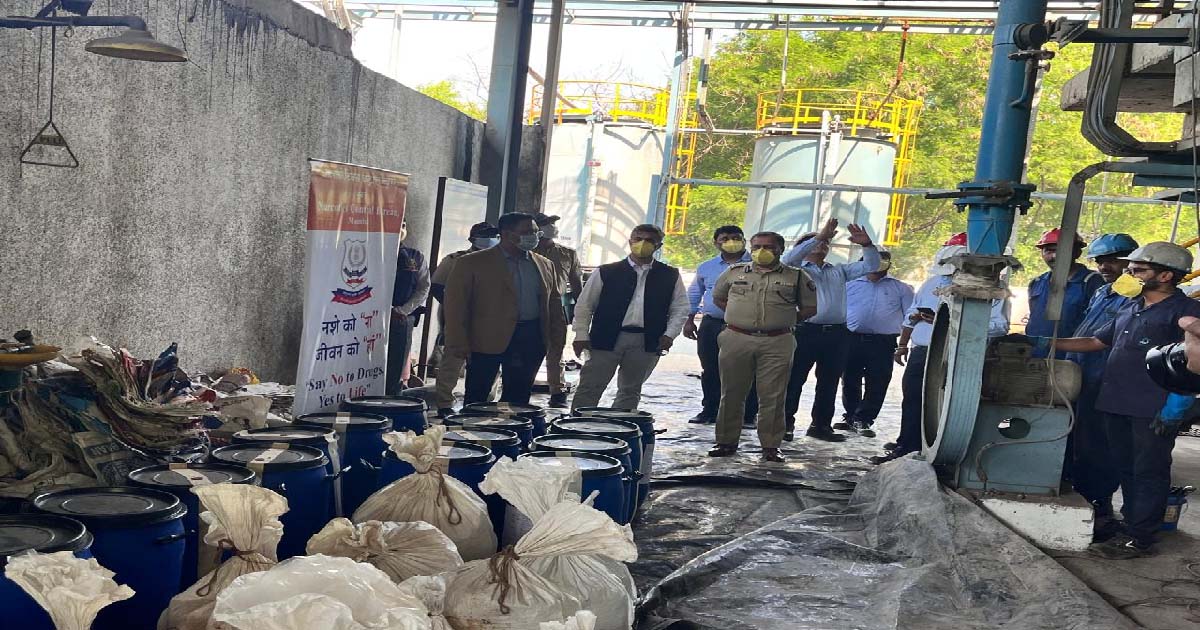Maharashtra
‘Woman’s right to choose…’ Bombay HC allows termination of 32-week pregnancy with foetal abnormalities

A woman has the right to choose whether to continue her pregnancy or not and the decision is hers and hers alone to make, the Bombay High Court said while allowing a married woman to terminate her 32-week pregnancy after the foetus was detected with severe abnormalities.
The woman had approached HC seeking to terminate her pregnancy after a sonography revealed the foetus had severe abnormalities and that the baby would be born with physical and mental disabilities.
“Given a severe foetal abnormality, the length of the pregnancy does not matter. The petitioner has taken an informed decision. It is not an easy one. But that decision is hers, and hers alone to make. The right to choose is of the petitioner’s. It is not the right of the Medical Board,” the court said in its order.
Refusing termination of pregnancy only on grounds of delay would not only be condemning the foetus to a less than optimal life but would also be condemning the mother to a future that will almost certainly rob her of every positive attribute of parenthood, the HC said.
Denial of her right to dignity
“It would be a denial of her right to dignity, and her reproductive and decisional autonomy. The mother knows today there is no possibility of having a normal healthy baby at the end of this delivery,” the court said.
“Accepting the Medical Board’s view is not just to condemn the foetus to a substandard life but is to force on the petitioner and her husband an unhappy and traumatic parenthood. The effect on them and their family cannot even be imagined,” it added.
The petitioner’s foetus is detected with both microcephaly and lissencephaly, and this is what the future portends, the bench said.
Asserting that the rights of the woman should never be compromised in the “blind application of a statute”, the court said, “Justice may have to be blindfolded; it can never be allowed to be blindsided. We are agnostic about the relative positions of parties. We can never be agnostic about where justice needs to be delivered.”
Moral dilemma
It said cases such as this often raise profound moral questions and dilemmas, but it is immutable that the “arc of the moral universe always bends towards justice”.
The bench said the existence of the foetal anomaly, as well as its severity, was certain as also the fact that it was detected late.
“Because it is difficult to predict at birth what problems will occur, microcephalic babies need constant and regular follow up and check-ups with health care providers. There is no known cure or standard treatment for it. In more extreme cases, microcephalic babies need intervention almost constantly,” the court said.
Most disturbingly, the prognosis for children with lissencephaly depends on the degree of brain malformation, it added.
The bench noted the medical board did not take into account the social and economic position of the couple.
“It ignores their milieu entirely. It does not even attempt to envision the kind of life, one with no quality at all to speak of, that the petitioner must endure for an indefinite future if the Board’s recommendation is to be followed,” the HC said.
“The Board really does only one thing: because late, therefore no. And that is plainly wrong, as we have seen,” the court said while allowing the pregnancy to be terminated.
Maharashtra
Byculla Redevelopment Site Accident Claims Two Lives

Mumbai: A tragic incident occurred on saturday afternoon at the proposed redevelopment site of Habib Mansion in Byculla (West). During piling work, the ground suddenly caved in, resulting in the death of two labourers on the spot.
Two to three other workers suffered serious injuries and were rushed to a nearby hospital. The accident took place at the Sundar Galli stretch between Haines Road and Tank Pakhadi Road, where redevelopment work is being undertaken by Ibrahim Jusab Sopariwala & Others. The project is linked to architects A2 Associates and Rajpurkar Associates, with ZZ Consultants reported as the structural advisors.
Local residents claimed that adequate safety measures were missing at the worksite, raising concerns about negligence. Police and BMC officials have cordoned off the area and launched an investigation.
Authorities said a detailed probe will determine whether safety protocols were violated during the redevelopment work.
Maharashtra
NCB seizes city drugs, sets them on fire

Mumbai: The Mumbai Zonal Unit of the Mumbai Narcotics Control Bureau (NCB) has disposed of about 1835 kg of Mephedrone along with 341 kg of other substances which were seized from various places in Maharashtra and Delhi. 16 persons were arrested in this case. A thorough investigation into the massive drug seizure led to the arrest of several persons including foreigners from various places, resulting in the elimination of close associates of the drug peddlers with international links.
As per the guidelines prescribed by the Hon’ble Supreme Court, a high-level Drug Disposal Committee was constituted comprising Deputy Director General (SWR) of NCB, Additional Director, NCB Mumbai Zonal Unit and Additional Commissioner of Pune Police. The case was reviewed and it was selected to dispose of the drug hoard. Accordingly, all legal conditions were complied with after which the seized drugs along with other chemicals were finally destroyed by incineration in the presence of HLDCC on 14th November 2025 at Maple, Ranjangaon, Pune, Maharashtra.
This significant seizure of drugs followed by disposal of the sub-judices, indicates the continuous efforts of NCB in dismantling organised drug syndicates and targeting drug offenders who pollute the drug ecosystem. The Bureau is steadfast in its mission to protect public health and uphold the vision of “Nisha Mukt Bharat” by 2047.
NCB is firmly committed to ensuring a drug-free society under the guidance of which it has curbed drug trafficking, broken financial nexus and curbed inter-state and international drug syndicates.
Citizens are urged to play their role by reporting any information related to drugs through the MANS – National Narcotics Helpline (Toll Free Number: 1933). The identity of the informants is kept strictly confidential.
Maharashtra
Three men accused of robbing a youth have been arrested The main accused was apprehended in Titwala.

Mumbai: A young man returning home on a motorcycle in the Asalpha area of Ghatkopar was attacked and forcibly robbed by three men who brandished a chopper. A case was registered at the Ghatkopar police station under sections 309(4), 3(5) of the Indian Penal Code, sections 4, 25 of the Indian Penal Code, and sections 37(1) and 135 of the Indian Penal Code.
The complainant, Suraj Mahadev Dethe (24), and his friend, Yash Kamble, were passing near the Home Guard Training Center at approximately 1:30 a.m. on November 12th when three unidentified individuals in a three-wheeled tempo stopped them. The accused, using the chopper as a pointer, assaulted them, abused them, and stole their Honda Dio scooter and mobile phone.
As soon as the case was registered, the Assistant Commissioner of Police and Senior Police Inspector of the Ghatkopar Division inspected the scene. Based on technical and traditional investigations, the accused identified Hussain Aslam Memon, alias Genda. Upon receiving information that he was hiding in the Titwala area, the police apprehended him. During interrogation, he revealed the names of his accomplices – Munna Ramvilas Sharma and Dilshaduddin Sitabuddin Shaikh – who were subsequently arrested.
On November 13, the three accused were produced in court, where they were remanded to police custody until November 17. The investigation also revealed that Genda is a notorious criminal with more than 13 cases registered against him in various police stations.
-

 Crime3 years ago
Crime3 years agoClass 10 student jumps to death in Jaipur
-

 Maharashtra1 year ago
Maharashtra1 year agoMumbai Local Train Update: Central Railway’s New Timetable Comes Into Effect; Check Full List Of Revised Timings & Stations
-

 Maharashtra1 year ago
Maharashtra1 year agoMumbai To Go Toll-Free Tonight! Maharashtra Govt Announces Complete Toll Waiver For Light Motor Vehicles At All 5 Entry Points Of City
-

 Maharashtra1 year ago
Maharashtra1 year agoFalse photo of Imtiaz Jaleel’s rally, exposing the fooling conspiracy
-

 National News1 year ago
National News1 year agoMinistry of Railways rolls out Special Drive 4.0 with focus on digitisation, cleanliness, inclusiveness and grievance redressal
-

 Maharashtra1 year ago
Maharashtra1 year agoMaharashtra Elections 2024: Mumbai Metro & BEST Services Extended Till Midnight On Voting Day
-

 National News1 year ago
National News1 year agoJ&K: 4 Jawans Killed, 28 Injured After Bus Carrying BSF Personnel For Poll Duty Falls Into Gorge In Budgam; Terrifying Visuals Surface
-

 Crime1 year ago
Crime1 year agoBaba Siddique Murder: Mumbai Police Unable To Get Lawrence Bishnoi Custody Due To Home Ministry Order, Says Report












